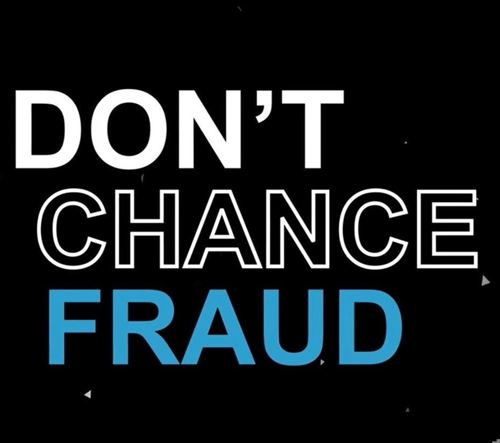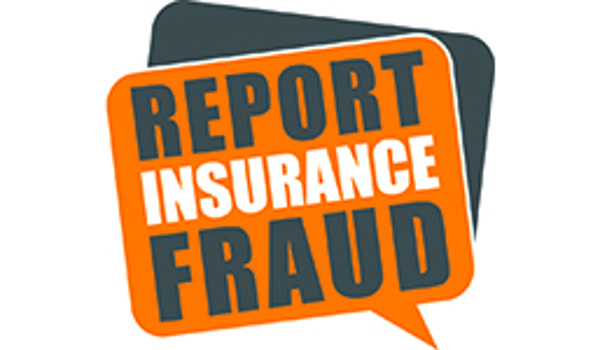Don't Chance Fraud! - IFB launches Insurance Fraud Register (IFR) awareness campaign

The Insurance Fraud Bureau (IFB) is warning of a rise in people added to the Insurance Fraud Register (IFR) as concerning new findings indicate more people than ever could chance fraud amid the cost-of-living crisis.
The IFR, which is managed by IFB, is a national database of insurance fraudsters and anyone on it can be denied essential insurance services for five years.
In the past 12 months (01/07/21 to 30/06/22) 5,058 people were added to the IFR - around 100 people a week. This is up 17% from 4,319 individuals added in the previous 12 months.
The rise in IFR cases comes as new YouGov research (commissioned by IFB) reveals one in five young adults would consider turning to fraud if they were struggling financially.
With the cost-of-living crisis placing millions of people in financial turmoil, IFB today launches its Don’t Chance Fraud campaign to highlight why succumbing to the temptations of fraud and landing on the IFR has devastating consequences for all.
Ben Fletcher, Director at the Insurance Fraud Bureau, said:
“As millions struggle because of the cost-of-living crisis, the sad reality is more people could be tempted to chance insurance fraud and face the serious consequences of having a record on the Insurance Fraud Register.
“There are no winners when it comes to fraud. If someone intentionally lies on an insurance application or claim, they’ll be put on the Insurance Fraud Register which can deny them access to essential insurance services for years to come. They could face criminal prosecution. Plus, the added costs from fraud unfairly make insurance more expensive for everyone else.
“I know it’s easier said than done, but if anyone is struggling to make ends meet then they must seek financial support and look at how they can best manage their finances. The insurance industry really wants to help its customers at this challenging time, so please reach out to the insurer if struggling with payments. Whatever the next steps may be, don’t let fraud be one of them… it only makes things worse.”
What is the IFR and how do people end up on it?
The IFR is national database of insurance fraudsters, accessed by 82% of the UK’s general insurance market. When an insurance application or claim is proven to be fraudulent the insurer can register individuals, businesses and articles (such as emails and phone numbers) linked to the fraud on the IFR.
There are currently over 50,000 records on the IFR and around 19,000 entries are people. Amongst individuals, the unemployed or those earning a low-income are sadly more likely to have an IFR record. Notably, millennials (26-41 year olds as of 2022) make up half of all cases.
The recent rise in IFR cases comes as insurers double down efforts to stop fraudulent activity adding costs to honest customers’ premiums, as so many struggle to make ends meet.
Top five reasons someone is added to the IFR
- Submitting fake no-claims-discount (NCD) documentation.
- Fronting - which is when someone puts themselves down as a named driver for a vehicle for which they are actually the owner/main driver.
- Exaggerating damage or injury on what would otherwise be a legitimate claim.
- Claiming for lost items which are later proven to be in possession.
- ‘Crash for Cash’ scams (staged motor collisions).
What are the consequences of being on the IFR?
IFR records are held for five years. Those on the database could be denied insurance services or will have to pay a significantly higher cost due to the increased risk they pose.
Having an IFR record affects access to all insurance services; including business insurance, health cover, home insurance, income protection, life cover, motor insurance, pet cover, savings and retirement schemes, travel insurance and investment funds.
New fraud findings
Exclusive YouGov findings carried out with 2,175 respondents in July 2022 shine a spotlight on people’s susceptibility to risking fraud and getting an IFR record, amid the cost-of-living crisis.
Lying when applying for insurance
- 21% (one in five) of 18-24 year olds would “likely” provide false or misleading information on an insurance application to save money, if struggling financially.
- 16% (one in six) of 25-34 year olds were also likely.
- Across all age groups, 9% were likely.
Lying when making an insurance claim
- 14% (one in seven) of 18-24 year olds would “likely” provide false or misleading information on an insurance claim to make money, if struggling financially.
- 13% (one in eight) of 25-34 year olds were also likely.
- Across all age groups, 6% were likely.
Feeling financially desperate
On average, 46% (one in two) of all respondents aged between 18-54 said they felt “financially desperate” as a direct consequence of the cost-of-living crisis.
Lack of awareness
- 46% (one in two) of 18-24 year olds did not think committing insurance fraud would make it harder for the perpetrator to take out insurance in the future.
- Across all age groups, 32% (one in three) shared the same view.
How can I find a better insurance deal?
If looking to reduce the cost of an existing insurance plan, speak with the insurer and find out what options are available. They may be able to adjust the plan or payment options.
If shopping around for a new deal, the British Insurance Brokers Association (BIBA) has an online record of registered Brokers who can help to find insurance deals across a range of product areas. Alternatively, consider using a comparison site to compare a range of quotes.
For general support, the Association of British Insurers (ABI) provides information on what customers might need to consider when taking out insurance.
Report insurance fraud
Insurance fraud adds costs to all honest consumers’ premiums and some scams can even put people in physical danger. Evidence of insurance fraud can be reported to IFB’s free confidential CheatLine (powered by CrimeStoppers) on 0800 422 0421 or online.


